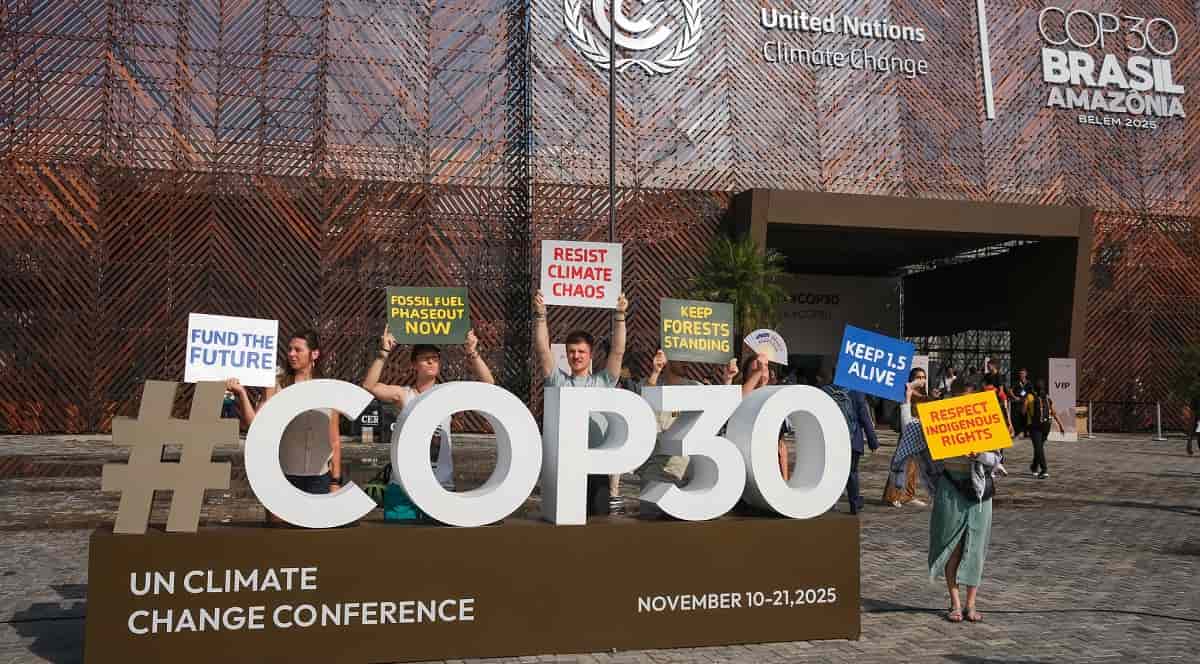
Climate misinformation has exploded into one of the most insidious barriers to effective global action on the climate crisis. With disinformation campaigns surging by 267% in the months leading up to the latest UN climate summit, false narratives are not just confusing the public—they are actively delaying critical responses, polarizing societies, and empowering fossil fuel interests.
How Big a Problem Is Climate Misinformation?
The sheer volume and velocity of climate disinformation make it a massive problem. In the three months from July to September 2025, COP-related disinformation skyrocketed by 267%, according to reports from climate monitoring groups. Keywords tied to the UN climate summit appeared over 14,000 times alongside derogatory terms like “failure,” “catastrophe,” “disaster,” and “joke.”
This isn’t random noise—it’s a coordinated “disinformation economy” where fossil fuel lobbies, political actors, and online influencers profit from outrage and lies. Misinformation weaponizes climate change as a divisive issue, eroding trust in science and institutions. At the UN summit in Belem, Brazil, leaders described it as an era of “fake news and misrepresentation,” with obscurantists rejecting evidence to attack progress.
The problem’s scale is amplified online, where algorithms boost polarizing content. Without reliable information, public support for climate policies crumbles, turning a scientific consensus into a debated “opinion.”
How Profound Are Its Effects Around the World?
The effects of climate misinformation are profound and multifaceted, creating a “multi-faceted global emergency” that intertwines with the climate crisis itself. It delays human responses, sabotages international cooperation, and makes Paris Agreement goals unattainable—putting millions of lives at risk.
- Polarization and Undermined Democracy: Disinformation polarizes societies, turning climate action into a wedge issue that weakens democratic processes worldwide.
- Delayed Action and Sabotaged Cooperation: Organized obstruction activities directly hinder urgent policies, as evidenced by studies from international panels on information environments and climate social sciences.
- Empowerment of Obstructionists: Fossil fuel interests and influencers monetize lies, prolonging reliance on high-emission practices and greenwashing corporate inaction.
- Erosion of Trust: A global “deeply concerning trend” of distrust in information leaves scientists fearing reprisals for speaking truth, while vulnerable communities suffer amplified risks from inaction.
These effects create a vicious cycle: misinformation stalls progress, worsening climate impacts like extreme weather, which in turn fuels more denialism. The result? Heightened risks for billions, from indigenous groups in the Amazon to coastal populations facing sea-level rise.
What Is Being Done About It at the UN World Summit?
For the first time, the UN climate summit—dubbed the “COP of truth”—has placed information integrity front and center. Brazilian President Luiz Inácio Lula da Silva opened the event in Belem calling to “defeat” climate deniers, while the UN Secretary-General urged fighting mis- and disinformation, online harassment, and greenwashing.
The centerpiece is the Declaration on Information Integrity on Climate Change, launched by the Global Initiative for Information Integrity on Climate Change. This marks the first formal state commitment to tackling false climate information while protecting free speech.
- Ensure accurate climate information.
- Support independent media for truthful environmental reporting.
- Make evidence-based data accessible to all.
- Build capacity to identify information threats.
- Promote media literacy and resilience against disinformation.
- Urge private sector integrity in business and advertising practices (transparent, human rights-focused).
So far, 12 countries have signed: Belgium, Brazil, Canada, Chile, Denmark, Finland, France, Germany, the Netherlands, Spain, Sweden, and Uruguay.
The Global Initiative itself—a partnership between the Brazilian government, UN, and UNESCO—aims to support journalists, researchers, and combat social media disinformation. Announced at the 2024 G20 Summit, it now includes 13 member states with recent additions: Belgium, Canada, Finland, and Germany.
Hundreds of civil society organizations, Indigenous groups, and leaders (including Paris Agreement architects) signed an open letter demanding ambitious, mandatory decisions to uphold information integrity.
A Turning Point in the Fight for Climate Truth
Climate misinformation is a colossal problem with profound global repercussions, from stalled policies to endangered lives. Yet, the UN summit’s actions signal hope: formal commitments, international partnerships, and calls for private sector accountability are stepping up the battle. By empowering societies with reliable knowledge, these efforts aim to deliver “yet another defeat to denialism” and accelerate decisive climate action. The “COP of truth” could prove pivotal—if commitments translate into real-world enforcement.